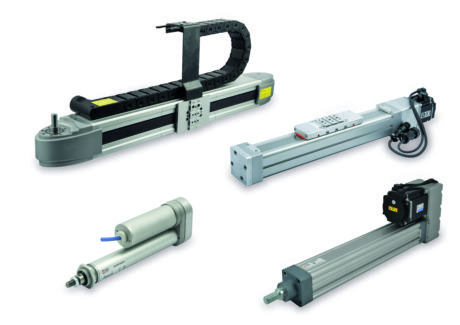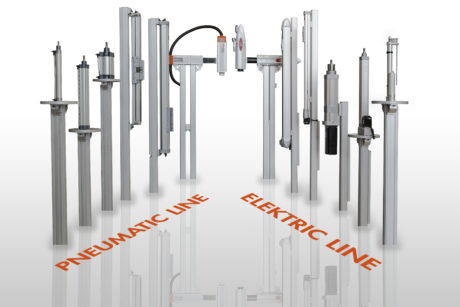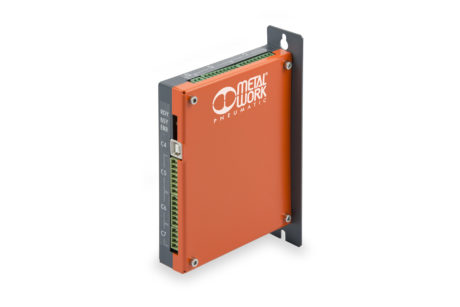The Italian company Metal Work is quickly widening its offer of electric-control actuators.

The company Metal Work, specialized in the production of automation components with headquarters at Concesio (Brescia, Italy) and with 42 subsidiaries in the world, is quickly widening its offer of electric-control actuators. In fact, even if in most applications pneumatic actuators constitute the simplest, cheapest and most reliable system to perform motions, in the meantime is growing the need of executing setups with the possibility of modifying strokes, speeds and accelerations. These requirements are satisfied by electric axes, which Metal Work proposes with an impressive variety of solutions:
– Electrical cylinders series Elektro ISO15552, with ø 32, ø 50, ø 63, ø 80 and ø 100 mm diameters, max. strokes of 1500 mm, axial thrusts up to 12,000 N, speeds from 0 to 1,000 mm/s. The feed speed of the rod is obtained with hardened screw and re-circulating ball nut system. The cylinder can be equipped with integrated anti-rotation system. A system for greasing the screw/nut without dismounting anything is included.
– Electrical cylinders series Elektro Round DC, for non-continuous motions, driven by DC motor, 12 VDC or 24 VDC power supplied. The nominal diameter is 32, the stroke up to 1000 mm and the maximum thrust of 500 N. The fixed speed can be chosen in the purchase phase between 10 mm/s and 100 mm/s. The control, with irreversible trapezoidal screw, allows bearing loads in vertical position, even if the electrical power supply is cut off.

– Electrical axes powered by re-circulating ball screw and nut, series Elektro rodless SK, with thrusts up to 1500 N and maximum strokes of 1200 mm. The anodized aluminium liner is completed by a metal strip along the entire length that protects from the entry of filth. Inside the liner are housed the re-circulating ball nut screw and the hardened steel guide with re-circulating ball bearings. In this way, the external profile is free, without control/guide mechanisms, while the carriage can withstand high loads and moments.

– Electrical axes driven by toothed belt series SHAK in two sizes, with strokes up to 2,400 mm, maximum speeds of 5 m/s and acceleration up to 50 m/s2. V-Lock-type modular fixing. These actuators can be mutually combined to form x-y-z gantry structures.
– “Motion” programmer. It is an electronic device able to control all drive types of whatever power, for both brushless and stepping motors. Its task consists in facilitating the programming of work cycles, even for unexperienced people, and in permitting the control of electric axes without PLC, too. It is an important element to facilitate the replacement of pneumatic axes with electric axes.



